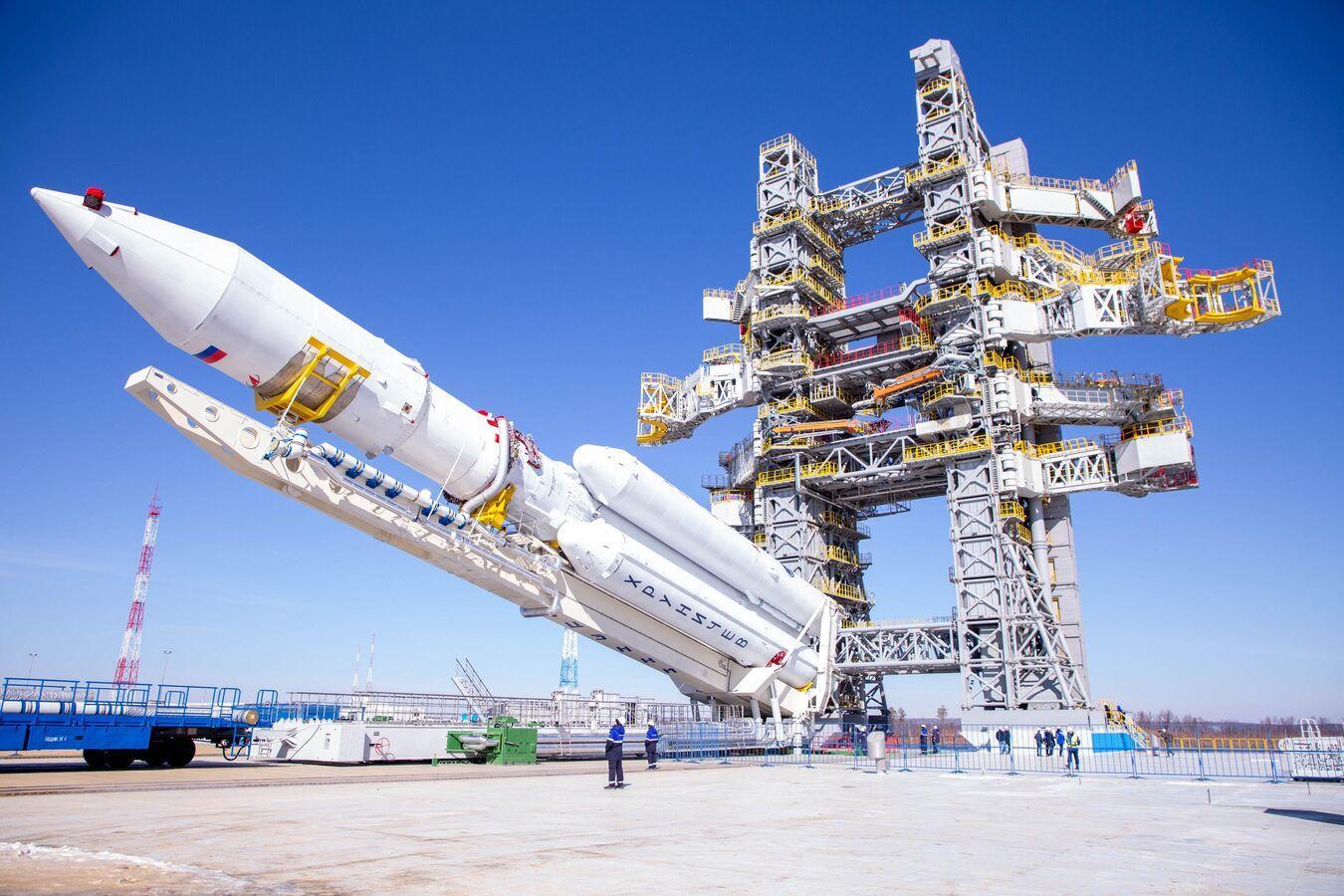Africa-Press – Namibia. The new carrier has been moved to a launch pad at the Vostochny Cosmodrome as part of the preparations for its upcoming launch – slated to take place sometime between April 6 and 10.
According to a press release by Russia’s space corporation Roscosmos, this launch of the Angara-A5 rocket with an Orion booster module is going to kickstart flight development tests of the Amur orbital launch vehicle with an Angara carrier rocket.
Angara-A5: What is It?
Angara-A5 is one of the latest iterations of the Russian-made Angara carrier rocket developed by Khrunichev State Research and Production Space Center, which is expected to phase out the Proton-M carrier rocket in the near future.
This three-stage rocket is capable of delivering up to 24.5 tonnes of payload into the low orbit thanks to its powerful RD-191 engines (the third stage, however, is equipped with RD-0124A engines).
One of the Angara-A5’s selling points is that, unlike Proton-M, it does not use toxic rocket fuel, which effectively translates into less risk for the environment both at the launch site and in areas where spent rocket stages might land.
Upgraded Variants
An upgraded version of the Angara-A5, known as Angara-A5M, can send up to 27.7 tonnes of cargo into low orbit thanks to its improved RD-191M engines that generate 10% more thrust than the RD-191.
The rocket’s developers also presented the concept of a piloted version of Angara, Angara-A5P, meant to launch cargo and spacecraft in orbit.
A new version of the Angara carrier rocket, dubbed Angara-5V, is currently being developed.
This three-stage rocket is expected to be able to ferry even more cargo into low orbit (up to 37.5 tonnes).
Angara-5V’s third stage is also going to feature a different rocket engine, RD-0150, that runs on liquid oxygen and hydrogen.
The Angara carrier rockets will ensure that Russia can launch all types of spacecraft from its soil and maintain an “independent access to space,” Roscosmos notes on its website.
For More News And Analysis About Namibia Follow Africa-Press






